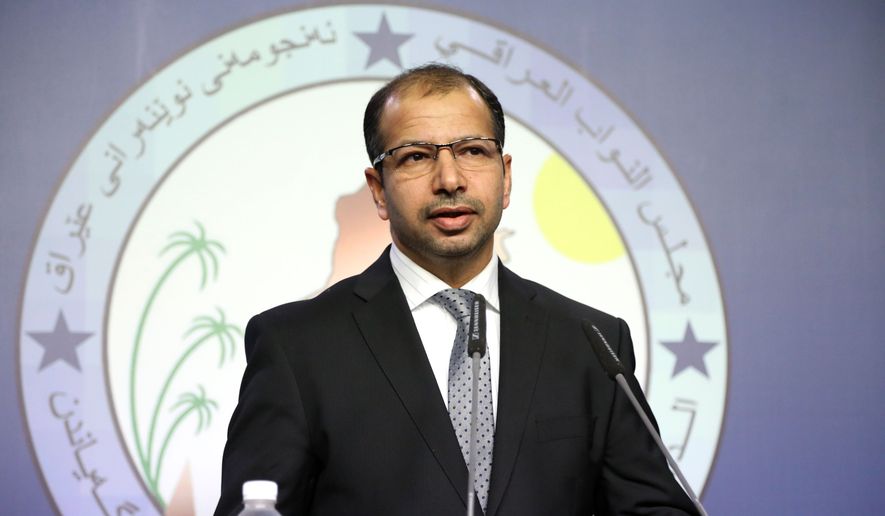A top Iraqi Sunni politician said Monday his nation’s parliament is close to voting on legislation to create a National Guard to formalize the role of Sunni tribal militias in the fight against the Islamic State — an initiative the Obama administration has been pushing for nearly a year.
While administration officials touted the National Guard law last fall as the best way to create a “Sunni Awakening 2.0” in Iraq, the initiative has faced resistance from Shiite lawmakers, many of whom are believed to favor arming their own sect’s militias in the fight against the Islamic State, an extremist Sunni organization with a base in Iraq and Syria.
But the speaker of Iraq’s parliament, Salim al-Jabouri, himself a Sunni, told an audience at the U.S. Institute of Peace in Washington on Monday that he’s optimistic the National Guard proposal could finally come up for a vote and may even pass into law next month.
“Arming the [Sunni] tribes and training and equipping them is important because local populations alone are the ones that can end [Islamic State],” said Mr. al-Jabouri.
However, there is great uncertainty over the extent to which Iraqi Prime Minister Haider al-Abadi, a Shiite Muslim, agrees with such logic.
Under the Obama administration’s anti-ISIS policy, U.S. weapons shipped to Iraq are required to pass through Baghdad, where the al-Abadi government has been entrusted with distributing them the Iraqi military and others fighting the extremists, including the Kurdish peshmerga forces and the Sunni forces.
SEE ALSO: Recep Erdogan’s party loss in Turkey won’t likely benefit U.S.
Some Sunni leaders say the Iraqi prime minister is discreetly channeling weapons to the nation’s Shiite militias — while keeping them away from Sunni tribes.
As a result, critics say, the Islamic State group is surging in such Sunni areas as Anbar province, where the extremists seized the city of Ramadi last month.
If the National Guard law were to pass, it may force the al-Abadi government to provide weapons to Sunni fighters in the province, rather than send Shiite militias there to lead the fighting.
Mr. al-Jabouri acknowledged fears that implementing the National Guard law could bring a longer-term threat of all-out sectarian civil war in Iraq.
“If we arm the Shiite armed groups and the Sunni tribes, the fear is that once [Islamic State] is ultimately eliminated, there will be a struggle in the future between those two sides,” he said. “Therefore, we must contain the situation in an official framework.”
He stressed that Sunni tribal fighters who rose up against al Qaeda in Iraq during the mid-2000s — a movement U.S. officials at the time dubbed the “Sunni Awakening” — were never rewarded by the Shiite-dominated government in Baghdad under Mr. al-Abadi’s predecessor, Nouri al-Maliki.
SEE ALSO: Cuba trade embargo fate hinges on Havana human rights progress
To the contrary, Mr. al-Jabouri explained, “all those who carried weapons and confronted al Qaeda were charged with carrying weapons illegally and were chased down by the government.”
“Now,” he said, “many of them need guarantees that if they confront [Islamic State], who’s going to protect them from the state afterwards?”
“They need someone to protect them,” he said. “The person they need most is the prime minister, and is he responding to them?”
• Guy Taylor can be reached at gtaylor@washingtontimes.com.




Please read our comment policy before commenting.